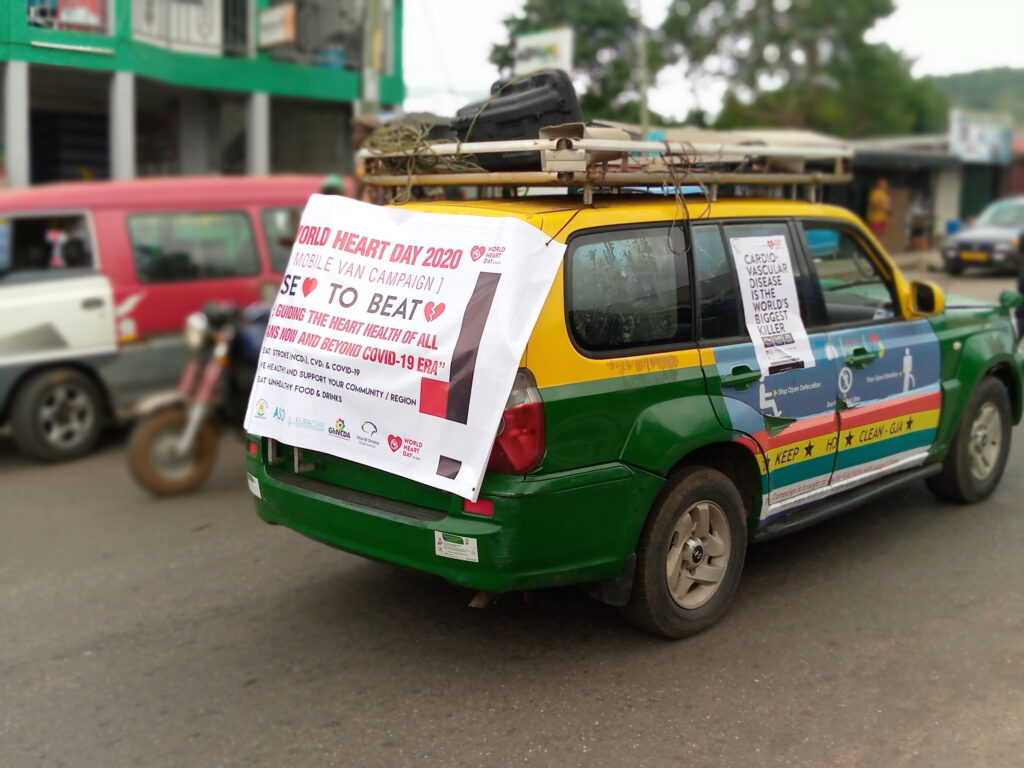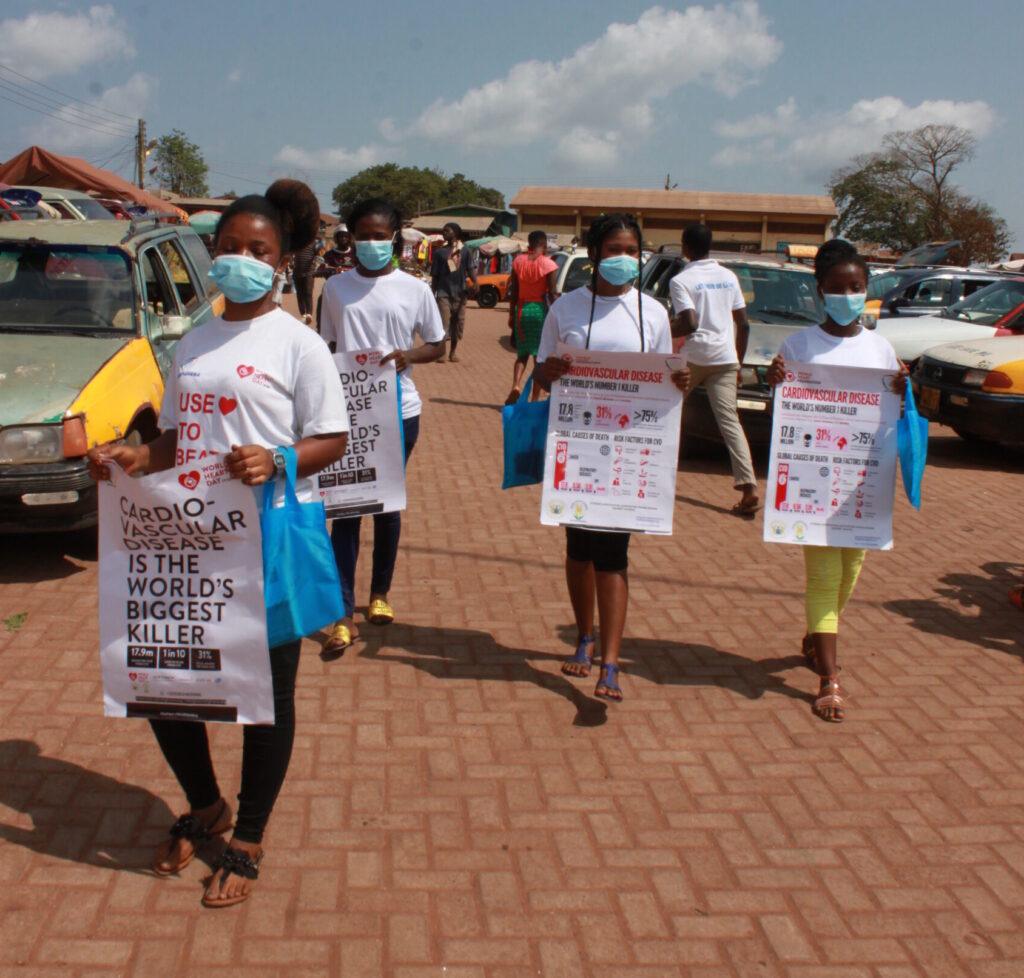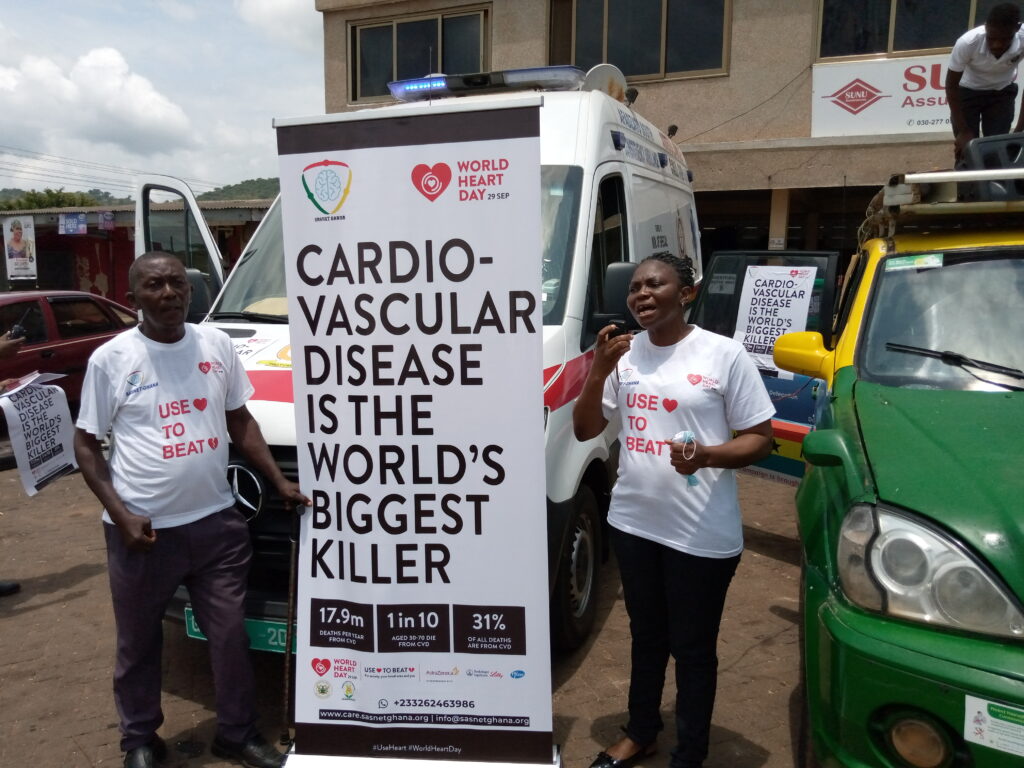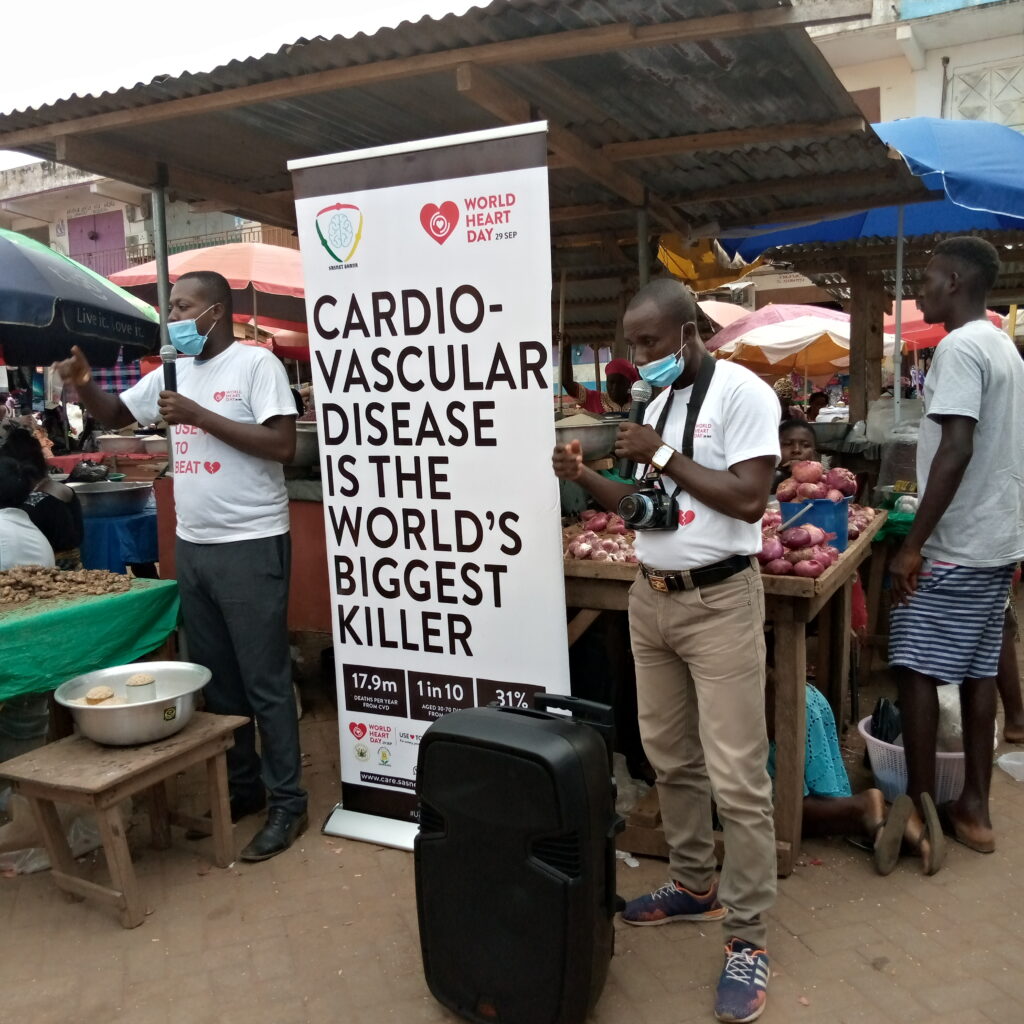Last year, the Stroke Association Support Network-Ghana (SASNET GHANA) launched a national campaign aiming at identifying policy gaps and priority areas of intervention to reduce the burden of cardiovascular disease (CVD). The campaign, which took place in the lead-up to World Heart Day 2020, received the support of the World Heart Federation through the World Heart Grants Programme.

The objective of the project was to raise awareness of CVD in the country. Activities were led by the SASNET GHANA team, with support from the Ghana Health Service, and were implemented using mobile vans, community engagements, media and social media campaigns. People living with CVD (PLWCVD) joined the campaign urging action to prioritize CVD prevention, control and treatment in Ghana.


The campaign, which took place from 25 September to 4 December 2020, included:
1. A pre-event media discussion on national television, radio and social media.
2. Educational mobile van events in selected regions.
3. A joint press conference with the Ministry of Health to prioritize CVD prevention and control as part of the necessary measures towards achieving Universal Health Coverage (UHC).
4. A post-event discussion on selected media platforms.


The following outcomes were achieved:
- World Heart Day was promoted across the country at the community level.
- Calls were made on the government to prioritize action on CVD prevention, treatment and control, and increase commitments towards CVD in Ghana through a joint press conference.
- Knowledge about CVD increased among the population by way of the community engaged through the mobile van campaign.
- The government was well informed on the impact of CVD on the population.
- The government made a commitment to launch the National NCD Policy in the 3rd quarter of 2021. The National NCD Policy document includes components of CVD Control, Prevention and Treatment.
- The media were engaged and made commitments to include heart health issues on their agenda, hold the government accountable and expose the industry polluters e.g. tobacco and food industries (on the use of trans fats).
- Selected communities were educated on CVD risk factors and prevention.


